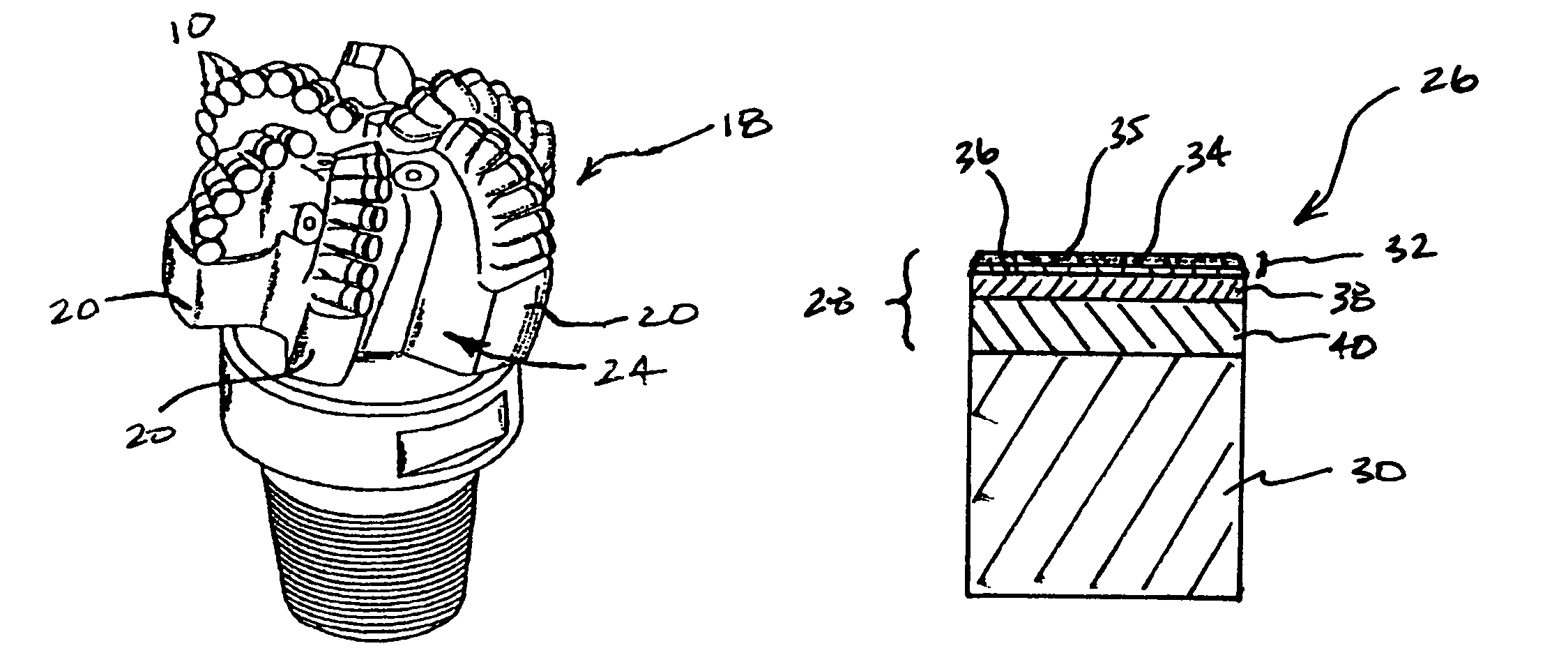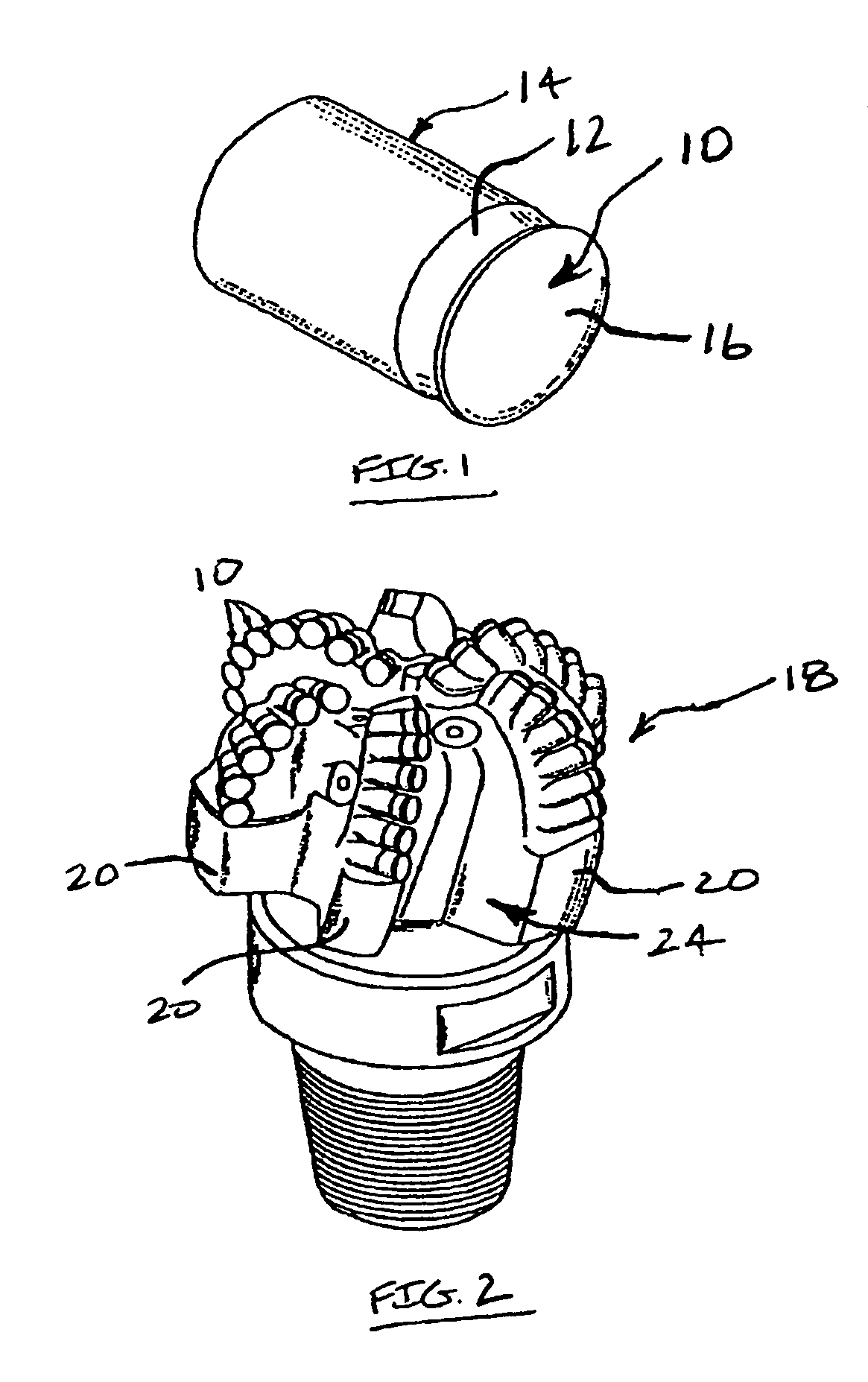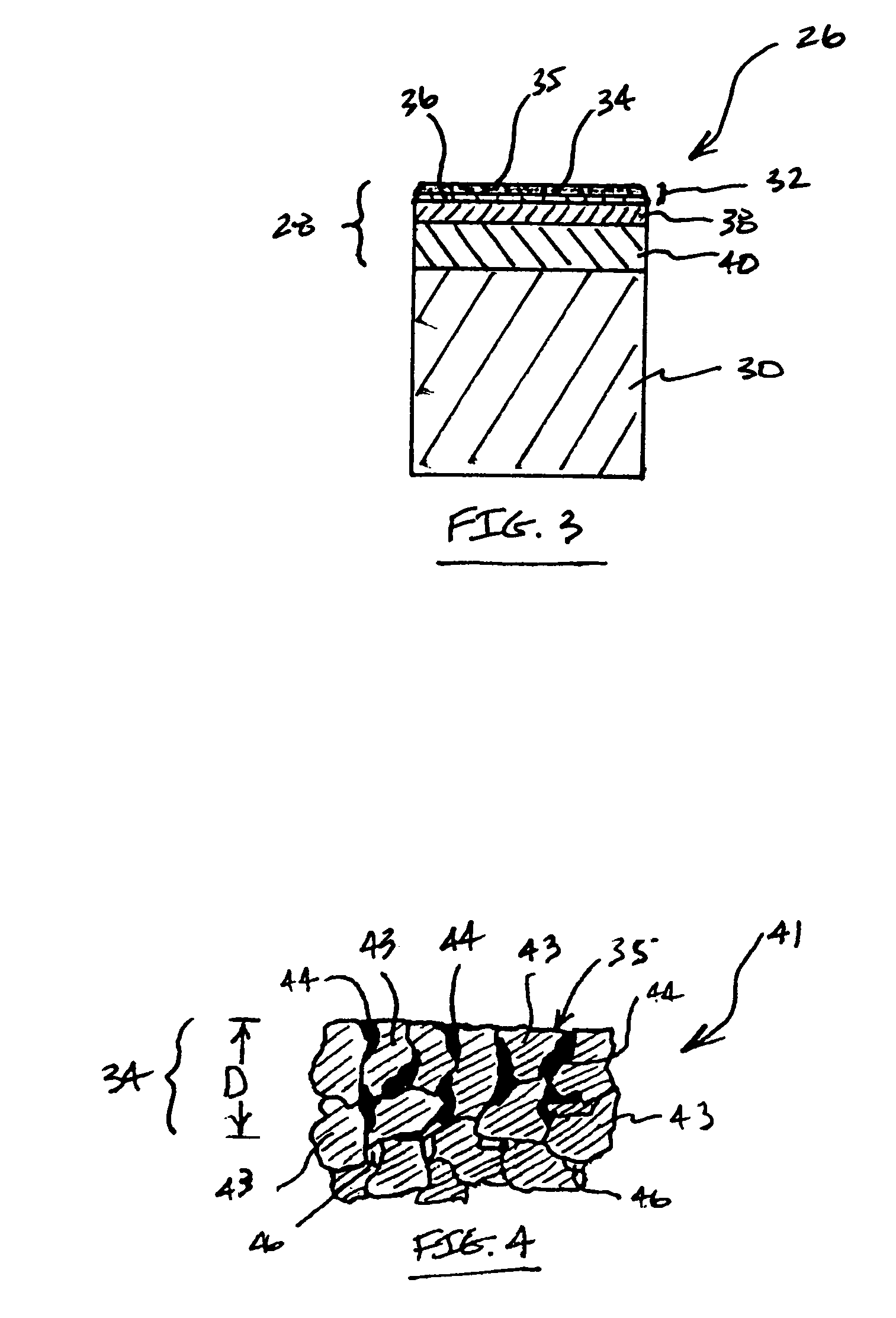Cutting elements formed from ultra hard materials having an enhanced construction
a cutting element and ultra-hard material technology, applied in cutting machines, layered products, transportation and packaging, etc., can solve the problems of premature failure of the cutting element and the drilling device including the same, poor thermal stability of the pcd cutting element, etc., to reduce or minimize unwanted delamination and/or spalling, improve the service life of the cutting element, and improve the effect of wear resistance and thermal stability
- Summary
- Abstract
- Description
- Claims
- Application Information
AI Technical Summary
Benefits of technology
Problems solved by technology
Method used
Image
Examples
first embodiment
[0023]FIG. 3 illustrates a first embodiment cutting element 26 of this invention comprising, in its most general sense an ultra hard material body 28 that is sintered or otherwise attached to a substrate 30, e.g., a metallic substrate. In a preferred embodiment, the ultra hard material body comprises PCD. The PCD body comprises a number of different layers or regions that are joined to one another and that are each specially engineered to contribute specific properties to the overall construction. In this particular embodiment, the PCD body 28 includes an uppermost layer 32. The uppermost layer is formed from a PCD material that is capable of providing a high degree of wear resistance. In an example embodiment, the uppermost layer 32 comprises PCD that is formed using relatively tough / coarse-grade diamond grains.
[0024]In this example embodiment, the uppermost layer 32 includes an outer region 34 that includes an outer surface 35 that defines a working or cutting surface of the cutti...
second embodiment
[0057]Referring to FIGS. 3 and 5, the ultra hard bodies of the first and second embodiment cutter element of this invention are each attached to the substrate 30. Materials useful for forming substrates of this invention include those conventionally used as substrates for conventional PCD and PcBN compacts, such as those formed from metallic and cermet materials. In an example embodiment, the substrate is provided in a preformed state and includes a metal solvent catalyst that is capable of infiltrating into the adjacent diamond powder mixture, used for forming the lowermost layer or the intermediate layer, during HPHT processing to facilitate and provide a bonded attachment therewith. Suitable metal solvent catalyst materials include those selected from Group VIII elements of the Periodic table. A particularly preferred metal solvent catalyst is cobalt (Co). In a preferred embodiment, the substrate is formed from cemented tungsten carbide (WC—Co).
[0058]While cutter element embodime...
PUM
| Property | Measurement | Unit |
|---|---|---|
| particle size | aaaaa | aaaaa |
| grain size | aaaaa | aaaaa |
| depth | aaaaa | aaaaa |
Abstract
Description
Claims
Application Information
 Login to View More
Login to View More - R&D
- Intellectual Property
- Life Sciences
- Materials
- Tech Scout
- Unparalleled Data Quality
- Higher Quality Content
- 60% Fewer Hallucinations
Browse by: Latest US Patents, China's latest patents, Technical Efficacy Thesaurus, Application Domain, Technology Topic, Popular Technical Reports.
© 2025 PatSnap. All rights reserved.Legal|Privacy policy|Modern Slavery Act Transparency Statement|Sitemap|About US| Contact US: help@patsnap.com



